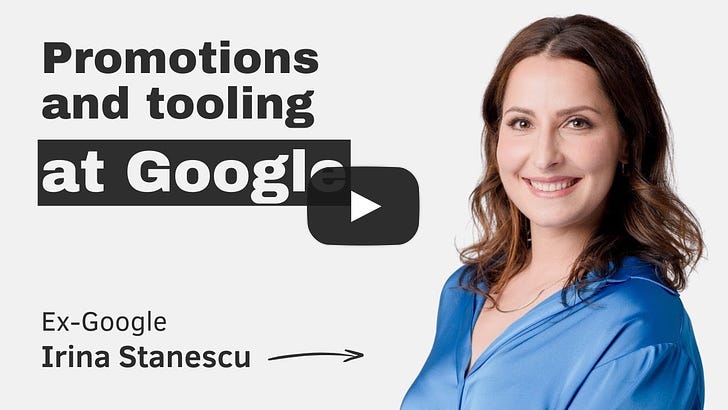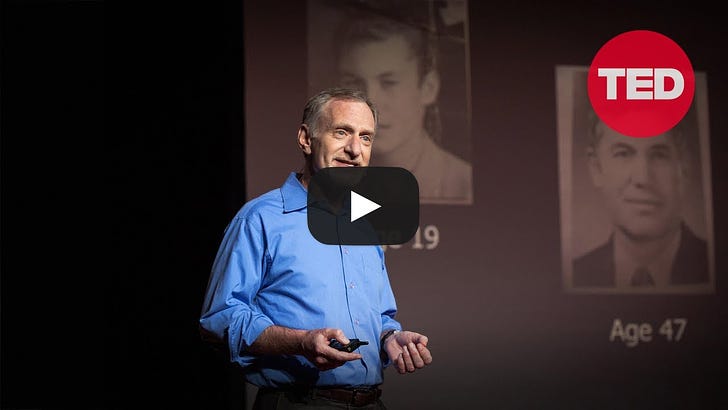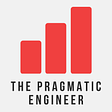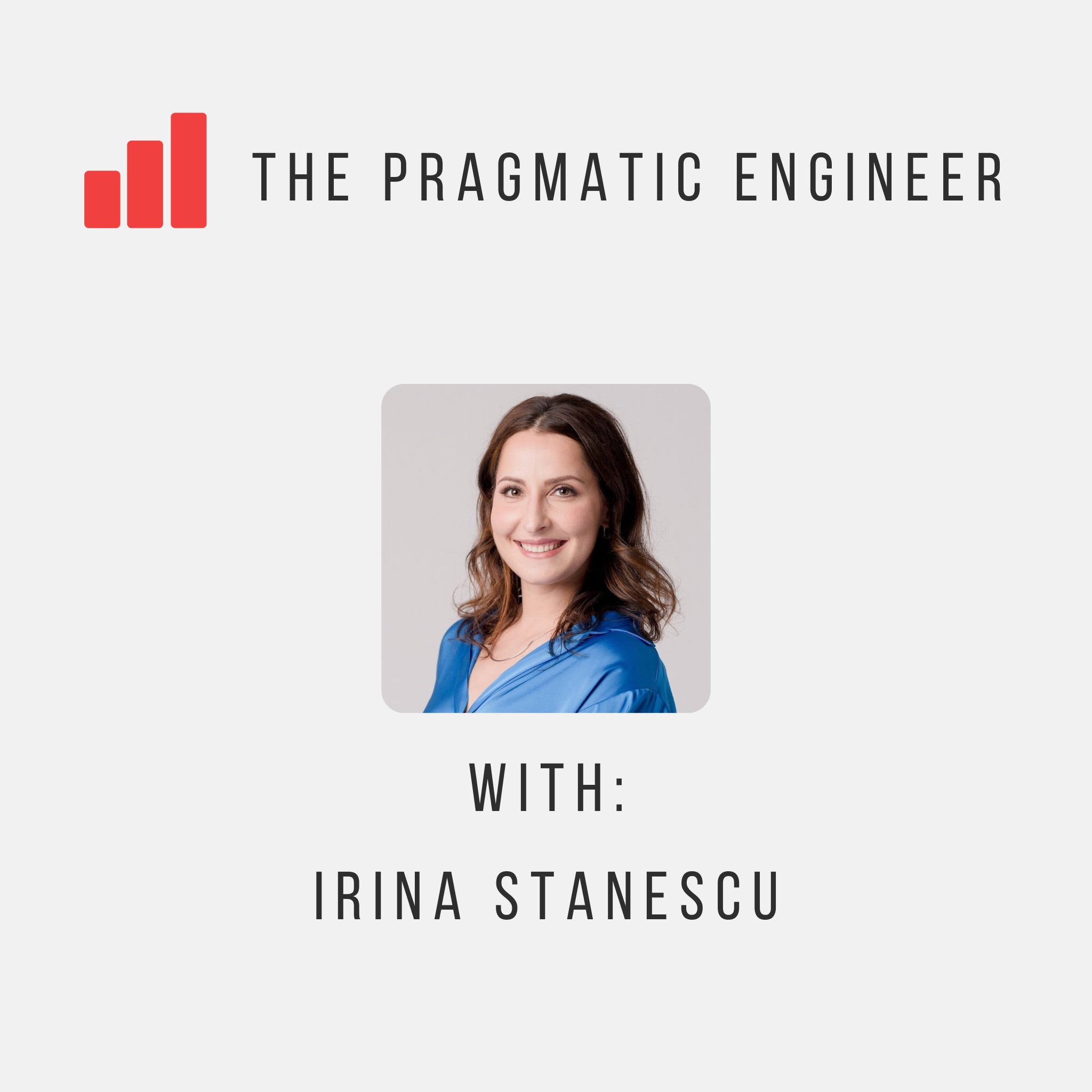Promotions and tooling at Google (with Irina Stanescu, Ex-Google)An inside look at Google’s unique working processes, tactical advice for getting promoted at companies like Google and Uber, and how to build influence as a software engineer.Listen now on Apple, Spotify, and YouTube. Brought to you by: • WorkOS — The modern identity platform for B2B SaaS. — In today’s episode of The Pragmatic Engineer, I’m joined by Irina Stanescu, a seasoned engineer with over 14 years in software engineering and engineering leadership roles at tech companies like Google and Uber. Now an engineering leadership coach, Irina helps tech professionals build impactful careers, teaches a course on influence, and shares insights through her newsletter, The Caring Techie. In our conversation today, Irina shares her journey of rising through the ranks at Google and Uber. We dive into the following topics:
 TakeawaysMy biggest takeaways from this conversation: 1. Google is different in its tooling and processes than most tech companies. While it’s common enough to hear from current and former Googlers just how many custom internal systems Google has, Irina shared several of these, which perhaps made it more specific. She mentioned ones like Borg (deployments), Critique (code reviews) and Memgen (meme generator). There’s often no direct mapping of these tools at other companies. Google also has processes around code quality that few, if any companies put in place. The concept of a “readability review” code reviewer is one of these. It shows just how much Google values clean and easy-to-understand code, to the point that they created a pretty heavyweight process to ensure code readability remains a top priority. 2. Being rejected for a promotion doesn’t necessarily mean that you’ll be slow to be promoted later. It sounded to me that Irina was very disappointed when her first promotion application from the L3 to the L4 level got rejected. At the same time, after she got promoted to L4, it took her a mere one year to get to the L5 level – which is an unusually short time at a place like Google! What happened? As Irina shared: after her first promotion rejection, she was more active in looking out for teams where she could have a bigger impact. When she joined a newly created team and there was a ton of work to do, she stepped up and did all this work. My read is that thanks to staying longer at Google, she understood more about how the company works; her tenure surely helped her get promoted – as well as doing great work. It’s a reminder that it can be worth grinding teeth and pushing through situations that don’t go your way – and turn things around later! 3. If you want to influence others: start by building credibility! Think about peers who you consider “influential:” why do you listen to what they say? There is a fair chance that those tech professionals have a track record of getting things done, their work is visible to you, and they are active participants in both discussing things and getting things done. So, if you would like your peers – or people on other teams – to see you as influential, you also need to put in the groundwork! Irina suggests asking yourself the question: “Why should people listen to you?” And figure out the answers to these questions as well:
Influence is a two-way street: some of the most influential tech professionals not only get things done, but they are good at listening to others and changing their minds and approaches if and when the other person has good points. Timestamps(00:00) Intro (01:34) Irina’s time at Google (03:10) An overview of ‘design docs’ at Google (08:27) The readiness review at Google (10:40) Why Irina uses spreadsheets (11:44) Irina’s favorite tools and how she uses them (13:46) How Google certifies readability (15:40) Google’s meme generator (17:36) Advice for engineers thinking about working for an organization like Google (20:14) How promotions work at Google (23:15) How Irina worked towards getting promoted (27:50) How Irina got her first mentor (30:44) Organizational shifts at Uber while Irina and Gergely were there (35:50) Why you should prioritize growth over promotion (36:50) What a career plan is and how to build one (40:40) Irina’s current role coaching engineers (42:23) A simple explanation of influence and influencing (51:54) Why saying no is necessary at times (54:30) The importance of building leadership skills ReferencesThe Pragmatic Engineer deepdives relevant for this episode: • Preparing for promotions ahead of time • Engineering career paths at Big Tech and scaleups • Getting an Engineering Executive Job Where to find Irina Stanescu: • X: https://x.com/thecaringtechie • LinkedIn: https://www.linkedin.com/in/irinastanescu/ • Website: • Maven course: Impact through Influence in Engineering Teams: https://maven.com/irina-stanescu/influence-swe Mentions during the episode: • Google Fiber: https://fiber.google.com/ • Design docs at Google: https://news.ycombinator.com/item?id=40273534 • Code Search: https://developers.google.com/code-search • Inside Google's Internal Meme Generator: https://www.buzzfeednews.com/article/reyhan/inside-googles-internal-meme-generator • Robert Waldinger: What makes a good life? Lessons from the longest study on happiness | TED:  • Think Again: The Power of Knowing What You Don't Know: https://www.amazon.com/Think-Again-Power-Knowing-What/dp/1984878123/ • The Midnight Library: https://www.amazon.com/Midnight-Library-Novel-Matt-Haig/dp/0525559493/ • Golang: https://go.dev/ • gRPC: https://grpc.io/ • Software Developer Promotions: Advice to Get to That Next Level: https://blog.pragmaticengineer.com/software-engineering-promotions/ • Preparing for Promotions Ahead of Time: https://newsletter.pragmaticengineer.com/p/preparing-for-promotions • Getting an Engineering Executive Job: https://newsletter.pragmaticengineer.com/p/getting-an-engineering-executive • The Seniority Rollercoaster: https://newsletter.pragmaticengineer.com/p/the-seniority-rollercoaster Production and marketing by https://penname.co/. For inquiries about sponsoring the podcast, email podcast@pragmaticengineer.com. You’re on the free list for The Pragmatic Engineer. For the full experience, become a paying subscriber. Many readers expense this newsletter within their company’s training/learning/development budget. This post is public, so feel free to share and forward it. If you enjoyed this post, you might enjoy my book, The Software Engineer's Guidebook. Here is what Tanya Reilly, senior principal engineer and author of The Staff Engineer's Path said about it:
|


